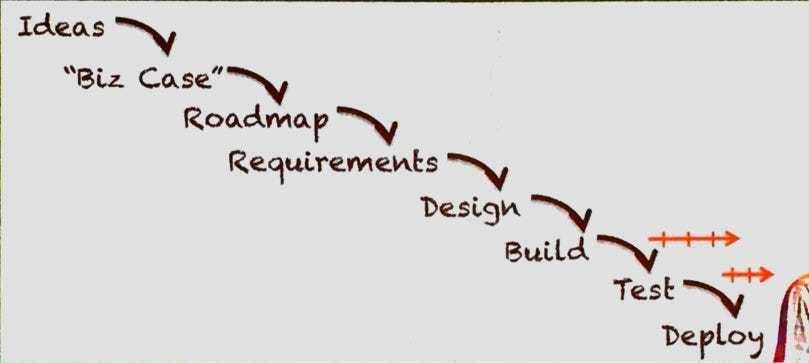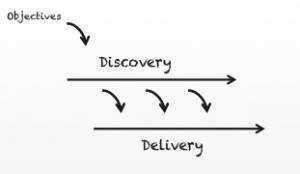Explore the World's Best Ideas
Join today and uncover 100+ curated journeys from 50+ topics. Unlock access to our mobile app with extensive features.
Winning products come from the deep understanding of the user’s needs combined with an equally deep understanding of what’s just now possible.
MARTY CAGAN
351
10.7K reads
Technology and Business Intersection
Nine out of every ten products launched fail because they did not achieve their sales goals and in many cases, this happens because of the lack of a proper product management process and a professional to manage it.
The product manager has a mission to solve the problems of consumers and therefore, they need to know who the target audience of the product is, what their problems and challenges are, and be smart enough to propose real solutions.
To hire a good product manager, a good place to start the hunt can be within the company itself. Your future product manager can be in any department.
331
1.94K reads
Product Teams Need The Right Resources
The PM has 2 primary responsibilities: Assess opportunities for product development and define the products that will be built to fit these occasions.
The PM needs a productive team around to achieve this:
- Designers and Users Experience Professionals should focus on creating the product interface for the ultimate consumer.
- Software engineers must develop the product that the manager has defined.
- The Product Marketer, this person, and the product manager must support each other to formulate marketing messages about the product together.
299
1.57K reads
User Experience Must Come First
The PM must work intensively with a design team:
The interaction designer works to understand the requirements and way of thinking of the target audience, and creates a prototype, also called a wireframe, based on this understanding.
The visual designer contributes the visual interface, applied to the skeleton. Essentially, these two roles create the entire user experience, making them key components of the product team.
Finally, it is necessary to test the product with users through usability tests and generate ideas for more iterations of the design process.
297
1.19K reads
PM Must Incessantly Look For New Opportunities
To understand how best to exploit these opportunities, you need to use a list of questions proposed by Cagan. The key issues are:
- What problem will this opportunity solve?
- Who is affected by the problem and how big is this market?
- What alternatives do competitors offer?
- Why can we succeed in this?
- What factors are critical to success?
- What metrics will we use to measure our success?
- Why is this the right time to enter the market?
- What is our entry strategy?
Only after finding a product opportunity to pursue is that a PM should initiate product discovery.
355
1.01K reads
Discovering A Product
To create a good product, engineers need to build it, consumers must use it, and the product must be valuable for consumers to buy.
To prove this, the PM must use a navigable prototype that offers a minimally realistic user experience so that users can test it. Involving engineers is also essential to decide which elements to have, also to know if the product is technically executable.
Once you have delivered the specifications to the dev team, your mindset should go out of the discovery process to get into execution.
299
852 reads
High Fidelity Prototypes Are A Fantastic Tool
Goal is to create a prototype with which anyone can interact to understand the product without necessarily having to look at its specifications. To prepare this, you will need volunteers.
Bring them together from every source you can: friends, family, classifieds ads. Define which tasks you want users to complete.
When you run the test, the less you talk, the better, so you do not get in the way of users’ experiences with your own opinions.
Your goal is to observe and understand whether your model might be inconsistent with how the user thinks. Fix problems that you find
301
770 reads
Create A Client Relationship Program And Collect Testimonials For Launch
Be present in every client interview and usability test. Keep your focus on identifying customer needs and find out for yourself how to meet those needs.
An excellent way to gain customer insight is through the user relationship program focused on solving a particular problem.
You then work with these clients as collaborators to develop and test a product to address this issue.
You need to develop a product that works for your entire target market, do not fall into the trap of making a specialized product for only one or two of your users.
300
697 reads
Use Personas And Principles To Make Decisions
To help with making hard decisions, you need to create a set of product principles.
Principles should be specific enough to help guide decisions about functionality, target audience, etc.
Another great tool to use in product management is the use of personas: fictional user profiles of typical clients.
The product manager creates personas based on what he or she knows about customer prospects.
Such simple archetypes help align the entire product team according to what the customer wants and what is important to them.
300
660 reads
Manage And Change Gradually
Adapting features indiscriminately to please specific customers, ends up making the product less attractive to the market and hampering its long-term success.
Product improvement should begin with an understanding of what your goals are. You should understand the most important product business metrics and guide all improvements to these metrics.
The most valuable time to make changes to a product comes after its release.
During this time, go into “quick response” mode, approaching ideas and customer requests quickly.
Consider running old and new versions of your product in parallel.
300
695 reads
IDEAS CURATED BY
Curious about different takes? Check out our INSPIRED - How to Create Tech Products Customers Love Summary book page to explore multiple unique summaries written by Deepstash users.
Maryadonna 's ideas are part of this journey:
Learn more about business with this collection
Conducting market research
Analyzing data to make informed decisions
Developing a product roadmap
Related collections
Different Perspectives Curated by Others from INSPIRED - How to Create Tech Products Customers Love
Curious about different takes? Check out our book page to explore multiple unique summaries written by Deepstash curators:
2 ideas
Jordi Sal YTal's Key Ideas from INSPIRED
Marty Cagan
Discover Key Ideas from Books on Similar Topics
5 ideas
The Lean Product Playbook
Dan Olsen
19 ideas
EMPOWERED
Marty Cagan
9 ideas
No Rules Rules
Reed Hastings
Read & Learn
20x Faster
without
deepstash
with
deepstash
with
deepstash
Personalized microlearning
—
100+ Learning Journeys
—
Access to 200,000+ ideas
—
Access to the mobile app
—
Unlimited idea saving
—
—
Unlimited history
—
—
Unlimited listening to ideas
—
—
Downloading & offline access
—
—
Supercharge your mind with one idea per day
Enter your email and spend 1 minute every day to learn something new.
I agree to receive email updates


